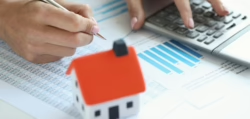A Retirement Income Stream is the term most commonly used to describe retirement income products, including Account Based Pensions, Defined Benefit Pensions and Annuities. Such products typically supplement other sources of retirement income, including:
- the Age Pension
- dividends from shareholdings
- interest earned on investments
- rental income from investment properties and
- other non-superannuation assets and investments.
Some 65% of retired Australians currently receive a full or part Age Pension, so this is often the main form of retirement income. In the world of retirement income, the ‘streams’ are the products which support the main river of income, the Age Pension.
As the compulsory superannuation system matures (it was originally established in 1992), more Australians are achieving higher balances, so a larger proportion will be funded, at least partly, by super drawdowns. The most common is an Account-Based Pension, a series of regular payments from your superannuation, which can be accessed, tax free, after age 60.
A Defined Benefit Pension offers a guaranteed amount of income for an agreed period of time. These were usually offered to government employees, but have now been largely phased out.
Some retirees will choose to purchase an annuity, either lifetime or fixed term. Income from such annuities also ‘flows’ into your retirement income.
In addition to Age Pension entitlements, at least 35% of Australians own shares. The dividends received may also contribute to their retirement income stream. Dividends are paid at the discretion of the company concerned, but retirees can also benefit from dividend imputation, which often means a cash bonus at tax time.
A large proportion of retirees also choose to keep some funds in cash or term deposit accounts. Whilst interest rates are low, this is often done to provide ‘emergency’ funding should something unforeseen occur. Interest from such deposits will also add to your retirement income.
And a small proportion of retirees will also receive income from commercial or residential investment properties.
These elements of your retirement income are relatively easy to define. The challenge lies in maximising this income. And this is why it helps to speak to a qualified financial adviser who knows the rules of the Age Pension, superannuation, taxation and retirement income products, so that you can ensure your mix of income is correctly calibrated for your needs and lifestage goals.
Find out more about our advice services.






Dear Retirement Essentials.
I enjoy reading your informative segments I receive by emails.
I
‘m currently 67 and on a partial Age Pension. I also receive a Defined Benefit Pension.
I cant figure out How is the Income Stream from a D.B pension assessed for Age Pension.
I would appreciate your help.
Kind Regards
Gerry
Hi Gerry, thank you for reaching out for further assistance. Regarding defined benefits, Centrelink assess the gross payment minus your deductible amount. Your deductible amount is also your tax-free component but if you are unfamiliar with either of these terms you can contact your provider and they will clarify it for you. You can request what is known as a “Centrelink/DVA Schedule” from your provider which will detail the figures.
I read with interest your article about Retirement Income Streams.
I was amazed that there was no mention of EquityRrelease borrowing (reverse mortgage) particularly in light of the comments of the recent report on retirement incomes.
I’m currently 67 and working FT. Can i supplement my salary by drawing down from my super at say $2kpm? I currently have have, almost, the max amount allowed Sal Sac to my super. Suggestions?
Hi Ray, thank you for reaching out for further assistance. We will send you an email separate to this comment with details regarding our Retirement Advice Consultation Service which would be the best forum to discuss your situation.
Can I move overseas and live there permanently while still receive a full pension from the government when I am retired at age 67.
Hi Ben, you can live overseas and still receive an Age Pension however you may not be entitled to the full amount. To fully understand your situation and answer your question it would be best to speak in a more confidential forum. We will send you an email separate to this comment with further details on how we could assist you.